
‘Afraid of the water’? Life in a city that dumps billions of litres of raw sewage into lakes and rivers
10 billion litres of sewage are dumped into Winnipeg’s lakes and rivers each year. Some...
As the BC NDP readies to govern with a razor-thin majority, BC Conservatives Leader John Rustad says one of his party’s first priorities will be pressuring Premier David Eby to get rid of the consumer carbon tax.
“That’s something that he had promised to do and we have full expectations that he will do that,” Rustad told reporters following election recounts that saw the NDP squeak into government this week. “We will push and try to figure out how we can leverage that to get rid of the entire carbon tax in British Columbia, but it’s an important piece of affordability.”
Before the Oct. 19 provincial election, Rustad, who was booted from the former BC Liberals in 2022 for questioning climate change science, led a caucus of two. After one of the most remarkable and dramatic campaigns in the province’s history, the BC Conservatives — which had not elected a MLA for more than 50 years — are now set to send 44 MLAs to Victoria. (Judicial recounts will take place in two ridings where only a few dozen votes separate the NDP and Conservative candidates.)
While the BC NDP secured an unprecedented third term in government, the party now holds a bare majority of 47 seats — 10 fewer than before the election campaign began. Three NDP cabinet ministers lost their seats, including Nathan Cullen, former minister of water, land and resource stewardship. BC Conservative candidate Sharon Hartwell beat Cullen in the Bulkley Valley-Stikine riding.
The BC Greens are also celebrating historic wins: Jeremy Valeriote’s West Vancouver-Sea to Sky victory is the first seat outside Vancouver Island the party has ever won, while Rob Botterell’s win in Saanich North and the Islands marks the first time a riding has passed from one Green MLA to another. (BC Greens Leader Sonia Furstenau lost her bid to represent Victoria-Beacon Hill.)
Lacking the strong majority the BC NDP enjoyed following the 2020 election, Eby acknowledged his caucus will have to take a more collaborative approach when the legislature resumes later this fall for a brief sitting. He issued an open invitation to Green and Conservative MLAs to work with the NDP on shared priorities.
“We’re happy to work with you to make sure that the legislature … works for British Columbians on those priorities that we all share,” Eby said at his first press conference after the final ballot count was released.
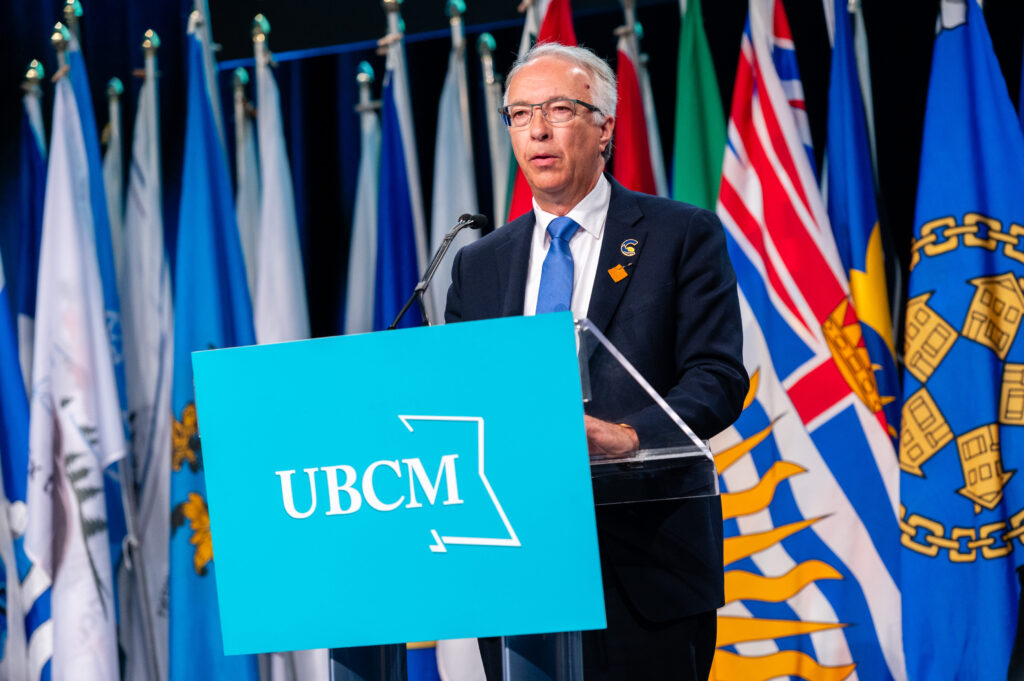
Rustad also opened the door to cooperating with the NDP under certain circumstances.
“Should the NDP decide they want to push forward any part of their agenda that relates to what we’re trying to achieve, they’ll find us as a partner,” he told reporters, adding the government will find the Conservative caucus “vehemently opposed” to policies that don’t reflect its priorities.
The Greens have been playing their cards close to the vest — although Furstenau told reporters she spoke to Eby following the initial ballot count.
The legislature’s dynamics will be very different when the crop of newly elected MLAs — many assuming provincial office for the first time — gets down to work, especially if the NDP and Greens do not commit to a confidence and supply agreement as they did in 2017 after the NDP failed to secure a majority government.
Although the Greens don’t hold the balance of power this time around, they could still play a pivotal role in the legislature, according to former BC Liberals MLA Mary Polak, who served as official opposition house leader for several years and was also the former environment minister.
In situations where the NDP needs a vote or two to get a bill across the finish line, Polak said it could come down to securing support from the Greens, giving the two new Green MLAs the opportunity to make or break legislation.
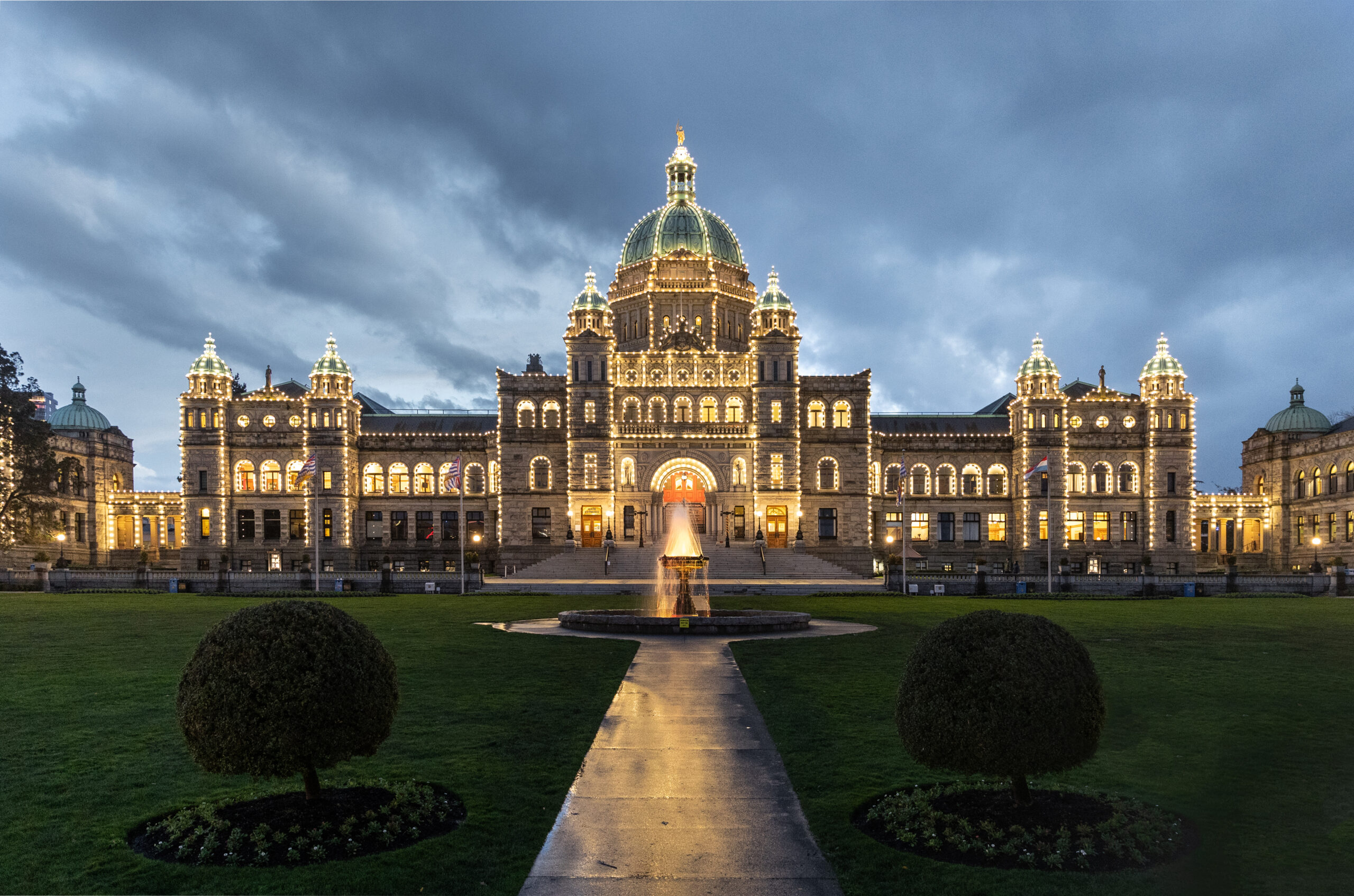
“Their ability to undermine things in the house as two independents, especially with some good support and coaching, I think that can make them very effectual — maybe more effectual than in the sense of being a kingmaker,” Polak said in an interview. “In terms of the ongoing workings of the [legislature], you could hear from them a lot more.”
The BC Greens declined to make Furstenau or their two rookie MLAs available for an interview; Eby told reporters members of his caucus planned to meet with the Greens on Oct. 29.
The parties’ election promises provide a glimpse of where the governing NDP could work with opposition MLAs on shared environmental priorities and where it is likely to face strong pushback.
The future of the provincial carbon tax could be one of the first policies put to the test.
On the campaign trail, Rustad promised to eliminate the provincial carbon tax entirely, which would have brought federal carbon pricing rules into effect in B.C., meaning Ottawa would impose a tax. Eby said a re-elected NDP government would get rid of the province’s consumer carbon tax if Ottawa first scraps consumer carbon pricing, something federal Conservative Party Leader Pierre Poilievre has promised to do if he wins the next federal election.
But Eby, unlike Rustad, pledged the NDP will keep B.C.’s industrial carbon tax.
“We will ensure that the big polluters pay a carbon price in our province to make sure that we’re taking action on climate change,” Eby said in September.
In order to axe the full carbon tax, the Conservative caucus would need support from the Greens, an unlikely scenario.
“Letting industry pollute for free means the public continues to pay the price,” Furstenau said during the campaign.
National backlash to the consumer carbon tax snowballed over the course of a year, starting with the federal government’s home heating oil exemption for Atlantic provinces in October 2023.
More recently, public pushback and political fear mongering has flared up about reconciliation with Indigenous Peoples and Indigenous Rights and Title.
In February, the NDP abandoned plans to amend the Land Act to better align the law with the Declaration on the Rights of Indigenous Peoples by creating a pathway for the province to make joint decisions with First Nations about public land use.
During a televised leaders’ debate in early October, Eby said he would not re-introduce the proposed Land Act changes — a commitment he confirmed at his Oct. 29 press conference. The premier said his government needs to do a better job at communicating the benefits that come from partnerships with First Nations.
“One of the things that I think we have the opportunity to do a better job with showing over the next four years is that when we deliver agreements, when we partner with Indigenous communities, the whole region benefits … There’s a whole array of reasons to do this work together,” he told reporters
Na̲nwak̲olas Council president Dallas Smith said the economic benefits of reconciliation have been mostly absent from the public discourse, despite agreements that illustrate how recognizing First Nations Rights and Title does not have to be a zero-sum game.
He pointed to an agreement Na̲nwak̲olas Council, a group of six First Nations on north Vancouver Island and B.C.’s mainland coast, inked with Western Forest Products in April, giving the council a 34 per cent share of a new limited partnership that will manage an allowable annual cut of 904,540 cubic metres on the council nations’ territories on Vancouver Island.
“We did not cost one person their job in that deal. And we’ve created other opportunities for First Nations people, and it’s not at the cost of non-First Nations people; we were even able to get the union onside with us on those discussions,” Smith said in an interview.
He hopes the re-elected NDP government — after failing to fully explain the benefits of reconciliation and allowing the topic to become what Smith called a “political football” during the election campaign — will take a more proactive approach to communicating the way reconciliation efforts with First Nations benefit all residents of the province.
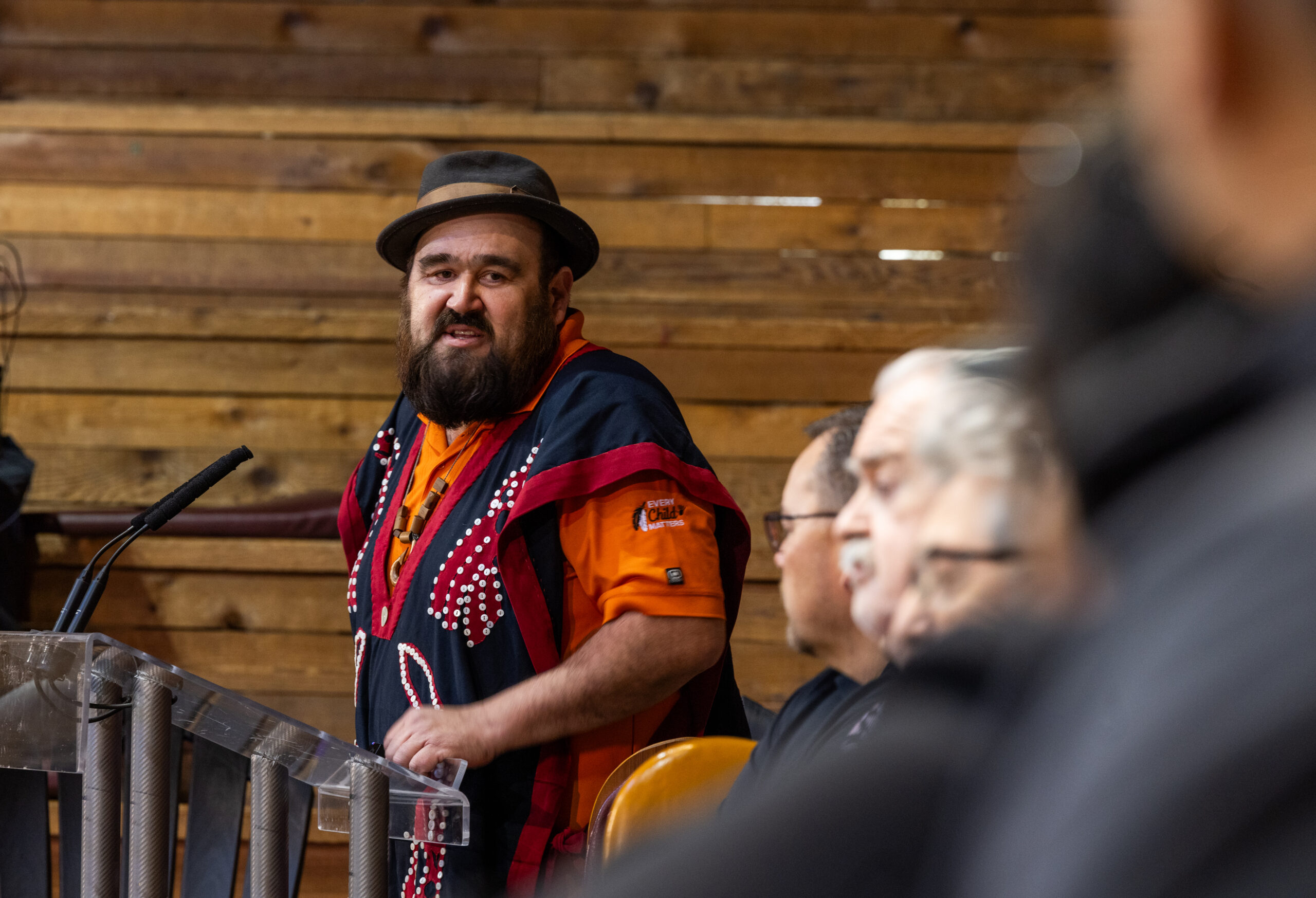
“When we talk about reconciliation, we always make it sound like it comes at the cost of something else,” he told The Narwhal. “I think what Premier Eby needs to do now is look at some of the bold steps that they made and be able to showcase some of that and show how we’ve actually increased certainty and we’ve created opportunity — in places where it didn’t exist — through reconciliation.”
On the prospect of working with the Conservative Opposition caucus, Smith said, “There’s going to be some challenges.”
During the election campaign, First Nations leaders around the province condemned Rustad and the Conservatives for pledging to repeal B.C.’s Declaration on the Rights of Indigenous Peoples Act and replace it with a law focused on “economic reconciliation.” Several Conservative candidates also faced criticism for casting doubt on the destructive impact of Canada’s residential schools and making derogatory and racist remarks about Indigenous people.
Rustad recently disavowed one of his candidates for racist comments but waffled when asked whether his party has work to do to repair its relationship with First Nations in the wake of the election campaign.
“Obviously working with First Nations is a huge priority,” he told reporters in answer to a question from The Narwhal. “You cannot achieve anything, whether it’s in the forest sector or otherwise in this province, unless you find a way to be able to work with First Nations and resolve particular issues, things like [Rights and] Title.”
For Smith, the election campaign highlighted how much progress First Nations have made on issues such as self-governance, conservation and economic development — much of which he said suddenly seemed at risk with the meteoric rise of the BC Conservatives.
“One thing that’s become clear to me is First Nations really need to lead the direction [of] and the progress on reconciliation,” Smith told The Narwhal, describing the NDP’s narrow electoral victory as a relief and noting progress on reconciliation and implementing the declaration act will continue.
“We were getting ready to have to make it clear that that path wasn’t changing for us,” he said. “Now we can focus on being more progressive and not having to be defensive, but it’s also showed us how we just need to be a lot clearer about what reconciliation is — so it’s not used as a fear tactic.”
While the Conservatives have numerical strength in opposition, how effectively the caucus of 44 MLAs work together will be key to the party’s success in the house, according to Polak.
“Can they pull themselves into a disciplined group with specific tasks that everybody sticks to and performs well? Because the only way they will succeed in the house is if they are able to take advantage of any slip-ups that the governing party makes,” she told The Narwhal.
The NDP’s commitment to protecting 30 per cent of the province’s land by 2030 could come under fire from the Conservatives; Rustad called the pledge “nonsense” in an interview with The Narwhal in May. But the NDP has support from the Greens, who back the initiative.
Rustad promised his caucus will actively push its own legislative agenda through private members’ bills, raising the possibility a stand-alone law to protect B.C.’s growing number of species at risk of extinction could be brought forward. During the campaign, the BC Conservatives promised to introduce “made-in-B.C. species at risk legislation so wildlife protections are shaped by B.C.-based experts — not Ottawa — and are reflective of our unique ecosystems.”
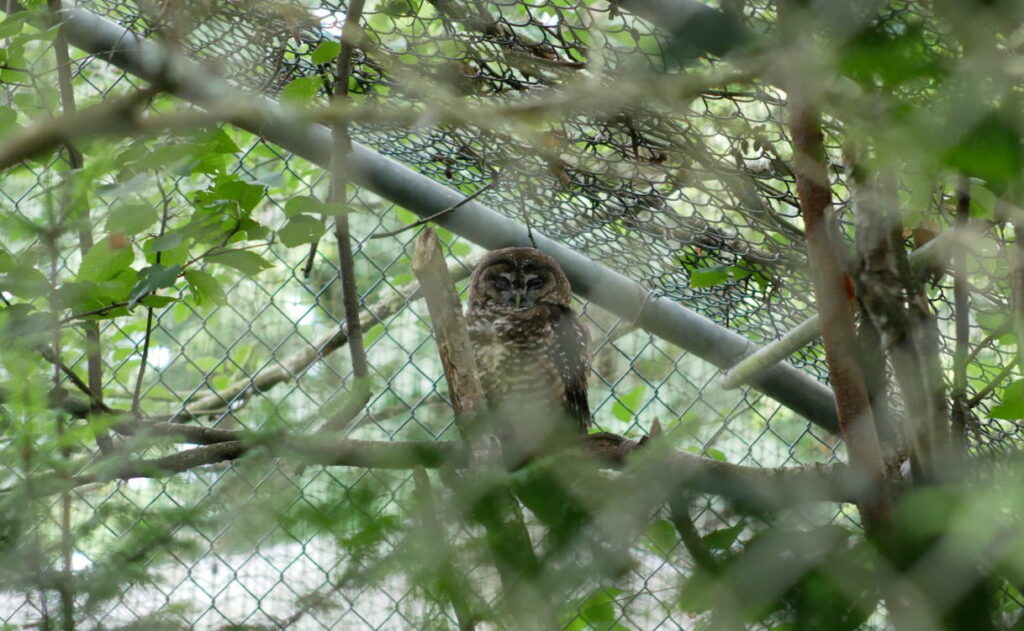
In its 2017 campaign platform, the BC NDP also committed to bring in a provincial law to protect at-risk species. But it quietly reneged on that promise after coming to power and the party’s 2024 platform made no mention of legislation to protect at-risk species — something the BC Greens also promised to introduce if elected. Instead, the NDP committed to working with First Nations and other partners on a “made-in-B.C. strategy” to protect biodiversity and watersheds.
Almost 2,000 species and ecosystems are officially at some risk of extinction in the province, according to the B.C. government’s conservation data centre — and advocates say the province’s lack of stand-alone legislation to protect at-risk species, including the spotted owl and caribou, remains a glaring gap.
Late last year, the NDP government released a draft biodiversity and ecosystem health framework. It said the framework would set the direction “for a more holistic approach to stewarding our land and water resources” and eventually lead to legislation to protect biodiversity.
The party aimed to finalize the strategy by the spring, but it was still in limbo when the election campaign kicked off in September.
Broadly speaking, the BC Greens’ election promises have more in common with those made by the NDP than the Conservatives — but the Greens do differ from the NDP on B.C.’s new liquefied natural gas (LNG) export industry. The Greens pledged to phase out fracking — a water-intensive method of natural gas extraction that is used to extract the majority of B.C.’s gas — and halt development of additional LNG projects.
Four LNG projects are currently at the permitting stage or undergoing environmental assessments, including the Ksi Lisims LNG project, which would be the province’s second-largest LNG export project. If approved, the four projects could produce 30 million tonnes of LNG per year on top of about 19 million tonnes per year from LNG Canada, Cedar LNG and Woodfibre LNG.
The Prince Rupert Gas Transmission pipeline — in the preliminary stages of construction — would ship mostly fracked gas from northeast B.C. to Ksi Lisims, near the Alaska border. The NDP government will soon have to decide if the pipeline, the subject of an ongoing blockade, will require a new environmental assessment following a route change. (The pipeline is facing a new legal challenge from the Gitanyow Hereditary Chiefs, who allege B.C.’s environmental assessment office failed in its duty to consult and neglected its obligations to protect fish species, specifically Nass River salmon populations.)
The decision will be made by the new environment minister, who will not be appointed until after the judicial recounts are complete, according to Eby.
Although the BC NDP has championed the LNG export sector, the party’s campaign platform barely mentioned LNG — save as a revenue stream for a “clean economy transition fund” to help “attract even more global investment in renewable fuels, clean tech, manufacturing and critical mineral mines. A new peer-reviewed study concluded exported gas has a larger carbon footprint than coal.
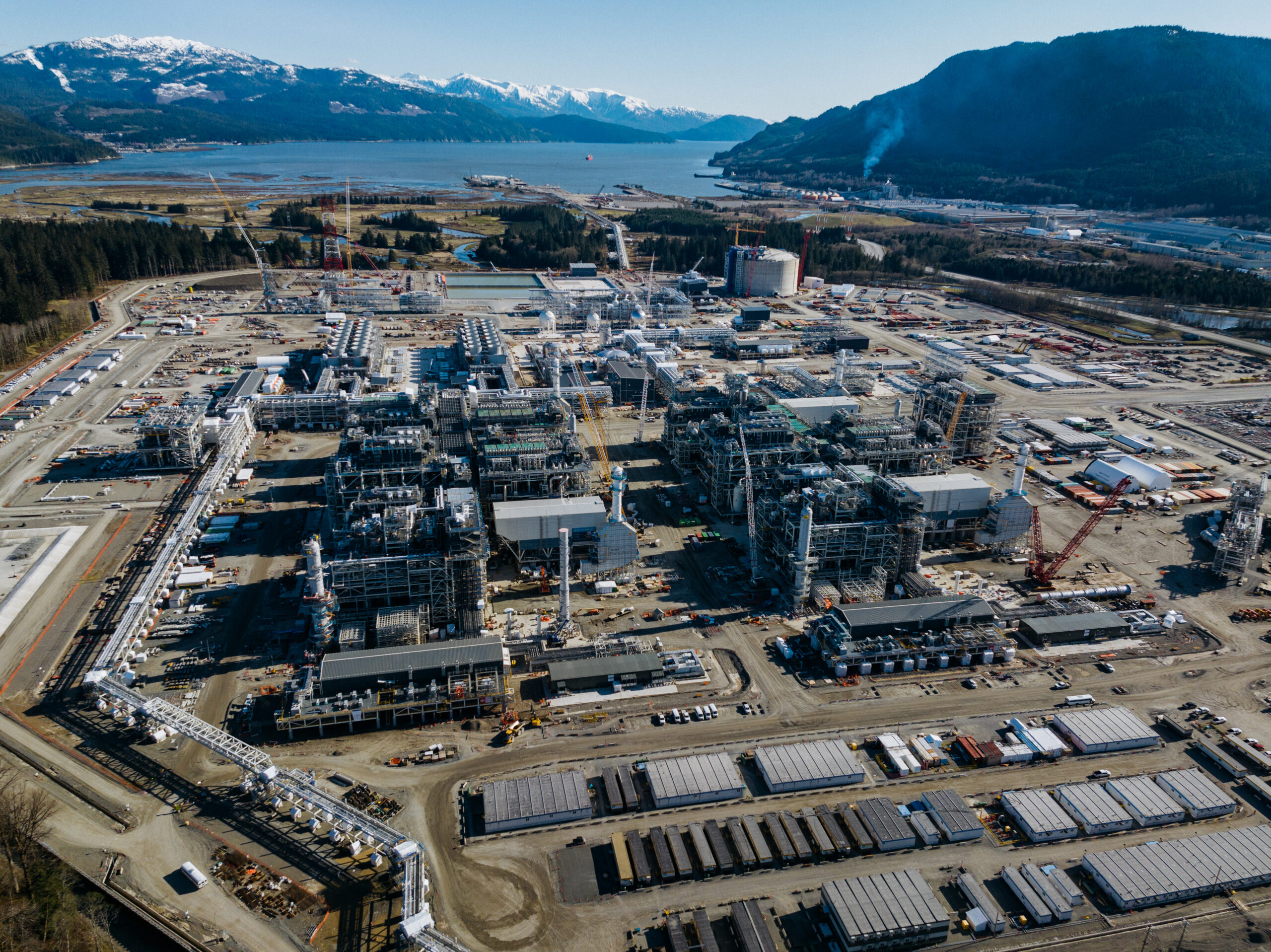
Even if the Greens introduce legislation aimed at halting further LNG development, it’s likely to fail because the Conservatives pledged to double B.C.’s LNG output if they formed government.
One area where all three parties could find common ground is banning aerial spraying of glyphosate, a herbicide used in the forestry industry to kill deciduous trees and shrubs that can compete with crop trees valuable for forestry, such as pine. The NDP, Conservatives and Greens all committed to a glyphosate ban during the election campaign.
Forestry policy is a priority area for Rustad, who founded a forestry contracting company before entering public life. His party’s platform promised to “save B.C. forestry” while also enhancing biodiversity by ensuring two-third of the province’s forested area would “never see industrial-scale forestry activity.” The remaining third, about 22 million hectares, would continue to prioritize logging.
“Our balanced approach will allow industry to access an adequate and predictable supply of fibre, while protecting the ecological value of B.C.’s forests,” the Conservative platform stated. Critics pointed out that the party did not specify whether it would protect the province’s scant remaining old-growth forests, which are both rich in biodiversity and sought after by industry.
The NDP’s platform pledged to finish implementing landmark recommendations from the 2020 old-growth forest strategic review, which called for a major shift in how B.C. manages its forests. The party said it will create a fund to help mills re-tool so they can process smaller second-growth trees instead of old-growth trees.
The Greens support deferring logging of at-risk old-growth forests and have called for compensation for First Nations for any lost revenues due to logging deferrals.
At his press conference, Eby pointed to water management as an area where the NDP caucus could collaborate with the Greens. Both parties promised to take steps to improve watershed security in their election platforms.
Climate change and industrial activity are increasingly impacting watersheds across B.C. and Canada, prompting action at the federal level.
Earlier this month, federal Environment and Climate Change Minister Steven Guilbeault announced the launch of the Canada Water Agency, a standalone federal body that will coordinate funding and programming to manage the country’s freshwater resources.
Get the inside scoop on The Narwhal’s environment and climate reporting by signing up for our free newsletter. On a warm September evening nearly 15...
Continue reading
10 billion litres of sewage are dumped into Winnipeg’s lakes and rivers each year. Some...

Court sides with Xatśūll First Nation, temporarily halting Mount Polley mine waste expansion

Break out the champagne: Emma’s storied life and leadership in journalism has earned her the...
